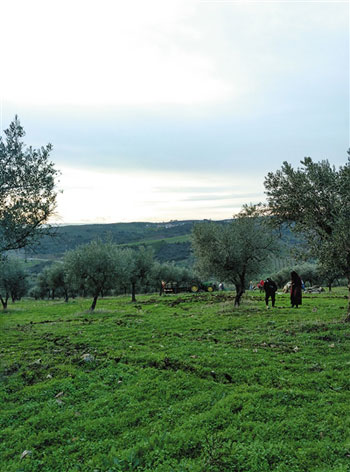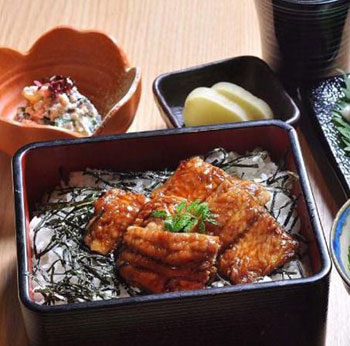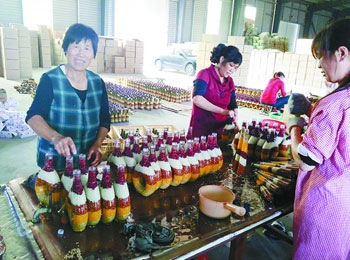European Farm China steals terraced grapes with high added value
Original title: European farms learn Chinese terraced field technology to grow grape "small farmer model" with high added value.

The olive fruit of the Romeu manor covers an area of several thousand hectares. Photo by Li Dong, a reporter from the Beijing News
Scotch Whisky Association introduced its main producing areas. Holy photo
Grapes in the Douro Valley are picked manually. Tailai winery offers pictures
Tailai winery displays the original product "port wine". Tailai winery offers pictures
Good wine comes from good grapes. In order to grow good grapes, Europeans actually "stole" terrace technology from China.
In the Douro Valley in Portugal, a reporter from the Beijing News saw that on the 30-degree slope, the terraces span one after another, as if they had reached the vineyards in the mountains of China. The most famous "port wine" in Europe is produced here, which is remote and modern, as well as in Europe.
From October 20 to 25, a reporter from the Beijing News visited a series of British and Portuguese farms at the invitation of the EU Department of Agriculture and Rural Development. Here, with its geographical indication certification system and insisting on traditional and innovative thinking, it is constantly self-updating the modern agricultural paradigm. Vlandas, a representative of the EU Department of Agriculture and Rural Development, said that at present, more than 3000 kinds of agricultural products in the EU have been certified, and the average price is 2.33 times higher than that of similar products. "it not only protects the authenticity of the products of origin, but also arouses the enthusiasm of agricultural producers." This provides a reference model for the continuous circulation of land and the continuous entry of new agricultural capital into China's rural areas.
Family Olive Manor
Planting, production and sales are all on their own
Olive oil, known as "God's nectar", has been grown in Portugal for more than 200 years. Romeu, Portugal's oldest olive plantation, is located in the northern mountains of the Douro Valley. The family manor, which covers an area of thousands of hectares, was built in 1874 and has been passed on for more than five generations and has successfully become a world cultural heritage.
Jose Bravo, the fifth-generation heir to Romeu Manor, inherited a huge estate after graduating from university, with about 60 branches. Bravo told the Beijing News that the manor all uses organic agriculture for planting and production, does not use any chemicals, uses conservation tillage, and introduces a pest control system. "after obtaining the mark for the protection of the place of origin, it means that organic olive oil must be developed within an approved range, and chemical elements cannot be added in the process of planting and extraction."
The Portuguese olive oil industry is mostly based on the industrial chain model of planting-processing plants-brand companies, in which more than 1000 processing plants buy olives from more than 100 plantations for residue removal and then entrust more than 100 olive oil sales companies to distribute them.
However, in the estate of the Bravo family, the certified olive oil is a whole industry chain model that integrates planting, production and sales. Olives are sent to different processing plants of the family, where they are pressed, filled, packaged and sold all over the country. "We are looking for import and export partners to sell organic olive oil to the Chinese market." Bravo said.
Scotch Whisky
Peat and oak barrels determine a distinctive taste.
Scotch Whisky is the pillar industry of beverage consumption in the UK. 90% of its products are sold to more than 200 countries and regions, contributing more than 38 billion yuan in exports each year.
British Scotch Whisky Association consultant LinedesayLow told the Beijing News that the authentic Scotch Whisky is only produced in Scotland and the raw materials are only water, yeast and grain. Whisky extracted by unique distillation process needs to be aged in oak barrels for more than 3 years to ensure the original taste and more than 40% alcohol content. Scotch Whisky's distinctive knack lies in peat and oak barrels.
When baking germinated barley, bituminous coal from the Scottish moor is usually used, and bituminous coal from different regions will give whisky a different taste. The barrels used in brewing are second-hand barrels imported from the United States, Canada and other places. "in North America, new oak barrels are generally used to sweeten the wine, so they will not be reused, but this kind of tasteless barrel is needed in the whisky brewing process." LinedesayLow explains.
Since 2008, the European Union has stipulated that Scotch Whisky is a geographical indication product in EU countries, but he has been plagued by fakes in recent years. In 2014, Scotch Whisky took 150 samples around the world and found that 75 per cent were counterfeit. According to reports, authentic Scotch Whisky filling, in the bottleneck part will leave some space, the label is also relatively neat. If whiskey is found to be fully filled and poorly labeled, it will be suspicious.
Porter wine base
Artificial trampling to control the sweetness of grape juice
The Douro Valley in the mountains of northern Portugal, which is the oldest vineyard producing area in the world, has a wine-making history of more than 2000 years. It is the only producing area of the most representative product of origin, "port". The annual sales of this item alone are as high as 370 million euros.
On October 30, the Beijing News reporter followed the representatives of the EU Ministry of Agriculture and the management of the Tailai winery to the river valley, which was purchased and contracted by many wineries. On steep slopes, planting bases and terraces with LOGO can be seen everywhere, while the mountain viticulture techniques here are imported from China.
Antonio, chief grape grower of Tailai winery, said that the soil base of the Douro River Valley is full of shale, and the yield of grape cultivation has not been high. A few years ago, when they visited California in the United States, they found that a Chinese businessman's vineyard had adopted a terraced planting model, which was introduced into the Douro Valley. "most of the Douro Valley is a hillside with a 30% slope. At present, more than 80% of the vineyards have adopted terraced planting."
Related
- A course of planting techniques and methods on how to grow carrots
- How to plant the latest tulips?
- Is it better to pick tea in the morning or in the afternoon? When is the best time for tea to be picked? what is the third or fifth tea?
- Launch Yuanxiao Happy combination Haocha + Tea Yuan healthy Taste
- Penghu Tourism "Fireworks 20 Parade with You"
- 2022 West Lake Happiness holds "Digital Revitalization Voucher" and draws iphone13 and laptop.
- Banqiao Fuzhou social houses are designed to change start-up combined with police elimination to create a safe and livable environment
- The convenient measure of "mechanical weeding" in Xinbei has been abused and the Agriculture Bureau has imposed heavy penalties on the illegal land consolidation.
- Changgeng University Joins Hands with Four Memory Factories to Rescue Memory Talent Shortage
- The list of Taiwan's top 100 MVP managers is listed by the Director-General of the Farmers' Association of Sanxia District.



